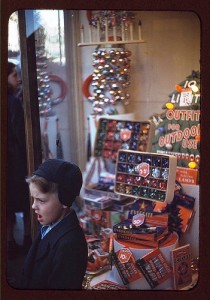Anger and Your Child
Are you expecting your child up to age six or seven to not get angry or handle anger with maturity?
Children Are Limited to Two Ways to Express Anger
- Verbally = difficult for a parent
- Behavior (bottle it up and let it leak out in destructive ways) = difficult for a parent
You might not want to hear this, but anger will come out in some way and should not be totally bottled up.
How you respond is HUGE!
“Which way should I pick?”, you ask.
Letting your child express anger verbally, vent anger in words, gives you the opportunity to train them in the direction of mature anger response. There is one thing you want to avoid…really avoid.
Passive-Aggressive…THE WORST BEHAVIOR!
This is where we discuss passive-aggressive behavior. “Passive-aggressive behavior is an expression of anger that gets back at a person or group indirectly, or ‘passively.'” (from The Five Love Languages of Children by Gary Chapman)
In plain terms, this is a child…who will do exactly opposite of what an authority figure wants. This is all done by the child subconsciously. Not all problem behavior is passive-aggressive.
Check to make a correct determination about this issue:
- Passive-aggressive behavior doesn’t make sense.
- You find you can’t do anything to correct their behavior. The whole point of passive-aggressive is to upset the authority figures.
- The purpose of the behavior is to upset authority figures, but in the long run it only hurts the child and their future relationships.
Not to worry, this was only to help you identify passive-aggressive behavior. It doesn’t mean that your child is PA. Identifying this helps you to correct it before it gets a foothold in their life.
There is a Mistake You Can Make Understanding Anger
The standard approach made by parents is to discipline anger out of children. This does not train children to handle their anger in good ways. You can’t discipline it out of a child.
We are back to the two ways children will express their anger and it depends on you. Until 6 or 7, your main task will be to make sure passive-aggressive behavior does not take root in your child. The most important way to keep this from happening is:
Keep Your Child’s Love Tank Full!
A great cause of your child’s anger and misbehaving is an empty love tank. When you respond to your child with their own personal love language, their tank fills up which keeps passive-aggressive behavior from taking root.
Children Have No Defense Against Your Anger
When you read a statement like that, you may think it does not apply to you, only to physically abusive parents. Untrue, it applies across the board to any anger a parent dumps on a child. Your child loves and trusts you unconditionally. Anger dumped goes straight in to them….to their very core. If you’re dumping angrily, then you won’t allow your child to speak to you in anger. You’d see that as disrespectful to you and redirect all that wrath on them once more. The child learns to bottle up their anger and guess how it comes out in the future.
There is more to post on anger coming from your child appearing disrespectful to you, cool down period before you both speak, dealing with your child’s anger in a positive way, hearing and understanding their complaints in a future posting. Interested in coming back?
What’s your response to anger in your child? How’s your child’s love tank? Leave a comment for our community of readers! Share this posting with your Facebook friends by clicking on the ‘like’ button below….








I recently had an issue with a passive-aggressive child of a friend of mine. I know that he spends little time with his parents because they both work a LOT and that the kid is probably just lonely and feels sad. His tank is running on almost empty, I’d say. NOT because his parents don’t love him… they absolutely DO. But there’s definitely something to the Love Languages. The kids craves TIME and he’s not getting it.
My solution was to make cupcakes with him and emphasize the things he was doing right. I can’t make up for the part of his parents… but I could attempt to put SOMETHING in his little tank!
Thanks for sharing this!
Sarah recently posted..Hello Kettle- Im Pot
Sarah,
You have shown yourself to be a good friend and lover of children. Filling his little tank will give him a respect for you and what you say to him. You’ve noticed he needed quality time and gave it to him…plus! I believe God had you in position to be a part of his life.
Wow. I needed to read this! Right now, Buggy vents physically or by disobeying – he’s still really learning how to talk. I guess I should be thankful that he yelled at me and talked back to me!
This parenting thing is hard!
Audra recently posted..Share Your Ideas! Bridal Shower Favors
Audra,
If Buggy is still learning how to talk, he’s probably frustrated, tired, hungry or a mix of them all. It sounds like you two end up working it out.
I’m also thinking Buggy is like my last child. He’s exceptionally smart, always wanting to acquire more knowledge and if you aren’t moving as fast as he is, he gets frustrated.
If Buggy is like that, you’ll need to pray for an exceptional wife that understands him starting now! :O)